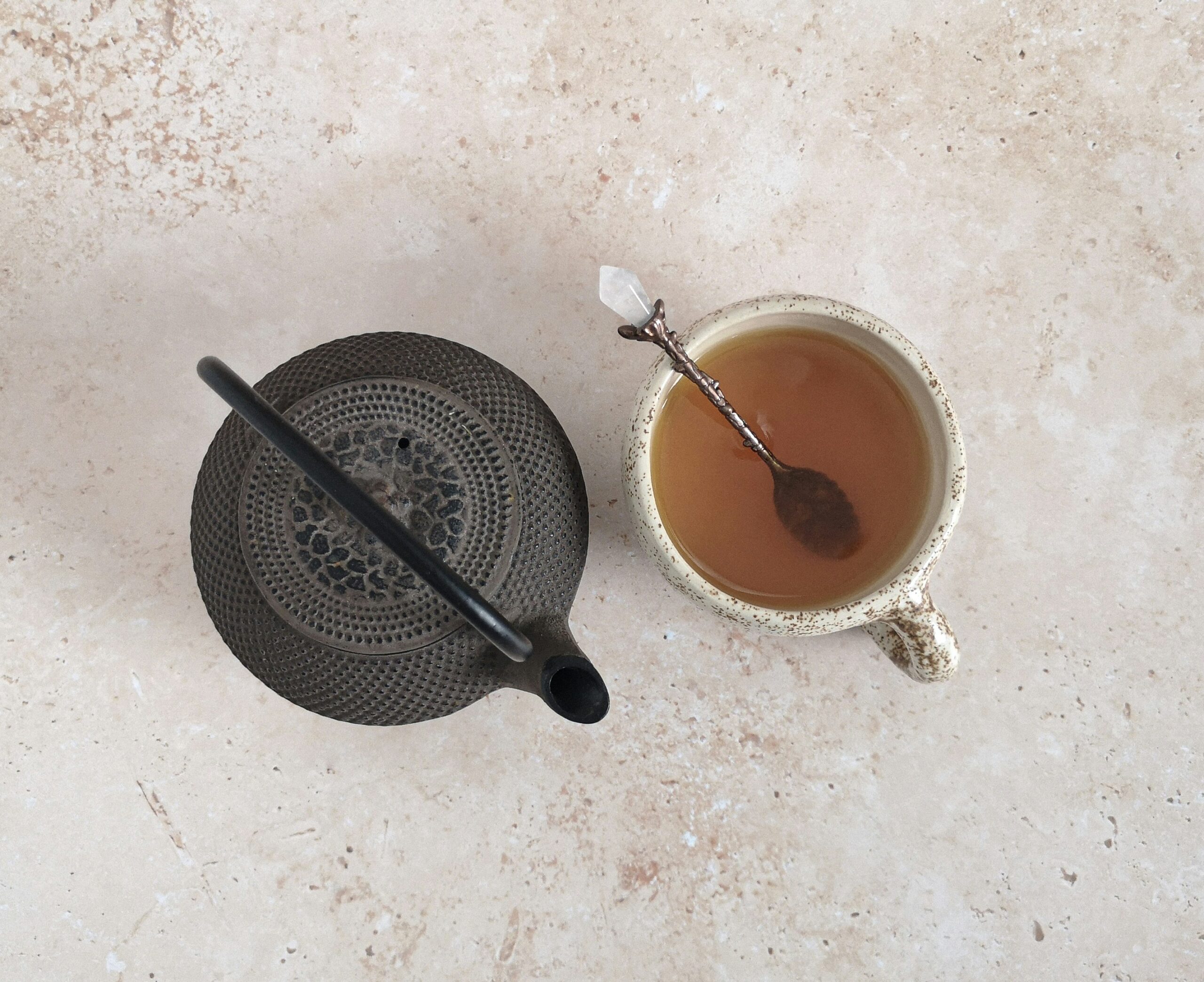
Boosting your immune system can be more accessible than you think. Using herbs is a natural way to support your body’s defences. Herbs such as garlic, ginger, and echinacea have been used to enhance immunity for generations. They contain active compounds that help your body fight off infections by supporting your natural defence mechanisms.
Incorporating herbs into your daily routine can be simple and beneficial. For instance, garlic is known for its potent bioactive compound, allicin, which provides antimicrobial properties. Similarly, cinnamon can help protect the body against bacteria and viruses. These herbs not only boost the immune system but can also be a delightful addition to meals.
Including herbs in your wellness plan could enhance your resilience against common illnesses. Medicinal plants have long been valued in various cultures for their power to support health. By understanding and utilising herbs effectively, you can take a proactive role in maintaining your health naturally.
Key Takeaways
- Certain herbs naturally enhance your immune system.
- Herbs like garlic and cinnamon can be easily integrated into your diet.
- Utilising herbs can promote better health and resilience to illness.
Understanding the Immune System
Your immune system is a complex network that defends your body against harmful invaders like bacteria, viruses, and toxins. Key players in your body’s defence include natural killer cells and macrophages, which work to identify and eliminate threats.
A healthy immune system relies on various parts of your body, including the circulatory, digestive, and respiratory systems. Each part plays a unique role in supporting immune function. For instance, the digestive system houses beneficial bacteria that boost immune health.
Immune-boosting herbs like echinacea and elderberry can serve as natural immune stimulants. These herbs may help strengthen your body’s response, making it more resilient against infections.
Maintaining immune health is crucial for preventing illnesses. An overactive immune system can lead to autoimmune diseases, where the body mistakenly attacks itself. Supporting your immune system with a balanced diet, regular exercise, and adequate sleep is key.
When your immune response is strong, you’re better prepared to fight off infections. Ensuring you have enough vitamins and nutrients, like vitamin C and zinc, can also provide additional immune support. Using herbs wisely for immune system maintenance contributes to overall wellness.
The Role of Herbs in Immunity
Herbs offer vital benefits to your immune system through their natural compounds. They provide antioxidants, aid in immune regulation, and contain beneficial phytochemicals and adaptogens.
Herbal Medicine Overview
Herbal medicine involves using plants for health benefits. Medicinal herbs have been a part of traditional practices for centuries. They rely on active compounds to support well-being. Key herbs, such as echinacea and garlic, are known for their immune-boosting properties. These herbs may have antimicrobial effects that help your body fight off infections.
Incorporating these herbs into your diet can support your immune system. They can be used in teas, capsules, or as whole foods. Always consult with a healthcare provider before beginning any herbal regimen to ensure it suits your needs.
Antioxidants and Phytochemicals
Antioxidants are powerful substances found in herbs that protect cells from damage. Herbs like turmeric and green tea are rich in antioxidants. These include flavonoids, which are important for reducing inflammation and boosting immunity.
Phytochemicals, naturally occurring plant compounds, play a crucial role. They help in protecting cells and enhancing the body’s defence mechanisms. You might find these compounds in herbs like rosemary and sage. Including such herbs in your meals provides essential support to maintain a healthy immune response.
Adaptogens and Immune Regulation
Adaptogens are herbs that help your body manage stress. Stress can weaken your immune system, making adaptogens important for maintaining balance. Ashwagandha and ginseng are well-known adaptogens. They assist in regulating the immune response, ensuring it functions properly.
These herbs can be integrated into daily routines, offering a natural way to support your immune health. Adaptogens may enhance your body’s resilience to stress, which is crucial for an optimal immune system. Always consider guidance from health professionals if you are considering adaptogens as part of your health plan.
Key Immune-Boosting Herbs and Their Benefits
Herbs can play a significant role in supporting your immune health. Specific herbs like echinacea, astragalus, elderberry, reishi mushroom, and ginger are especially noteworthy due to their unique properties and benefits.
Echinacea and Immune Activation
Echinacea is widely recognised for activating your immune function. It can help increase the number of white blood cells, which are crucial for fighting infections. This herb may reduce the duration of colds and has potential antiviral properties.
You might find echinacea in various forms such as teas, tinctures, and capsules. It is often used in combination with other immune tonics like goldenseal to boost effectiveness. Regular use during flu season can offer added support to your immune defences.
Astragalus and Its Protective Role
Astragalus is known for its long history in traditional Chinese medicine. This herb supports your immune system by increasing the production of key enzymes and proteins. Its polysaccharides are believed to enhance resistance to stress and disease.
Astragalus might help protect against respiratory infections and has been linked to improved white blood cell activity. You can incorporate astragalus into teas, soups, or take it as a supplement to benefit from its immune-boosting properties.
Elderberry for Respiratory Health
Elderberry is particularly effective in respiratory health due to its antiviral effects. It is known to help reduce flu symptoms and may lessen cold duration and severity. Elderberry syrup is a popular choice for its pleasant taste and easily consumable form.
This berry contains antioxidants that protect your cells from damage. Its anti-inflammatory and analgesic properties provide relief from respiratory discomfort while supporting your immunity.
Reishi Mushroom and Immunity
Reishi mushroom, known as Ganoderma lucidum, is an immune-boosting wonder. It contains polysaccharides which are believed to enhance your immune response. Reishi is often referred to as a “superfood” due to its wide range of health benefits.
This mushroom is considered an immune modulator, helping to balance the body’s defences. It’s available in various forms, including powders and extracts, making it easy to add to your daily routine.
Ginger: An Anti-Inflammatory Powerhouse
Ginger is more than just a kitchen staple; it is a potent anti-inflammatory agent. It helps reduce inflammation in the body, which is vital in maintaining a healthy immune system.
Ginger may help soothe sore throats and is often used in teas or as a spice in cooking. Its analgesic properties can provide comfort during colds and flu, making it a versatile ally in your health regimen. Adding ginger to your diet might offer significant benefits during colder months.
Traditional Medicine Systems and Immunity
In traditional medicine, herbs play a key role in supporting immunity. These systems, such as Traditional Chinese Medicine (TCM) and Ayurvedic Medicine, have been used for centuries.
Traditional Chinese Medicine includes herbs like Ganoderma, also known as Reishi mushroom. It is believed to enhance immune function and improve overall health by increasing the activity of white blood cells.
Ayurvedic Medicine often uses Indian ginseng, or Ashwagandha. This herb is valued for its ability to reduce stress and support the immune system.
Eleutherococcus senticosus, often called Siberian ginseng, is another herb used in both these systems. It is thought to boost energy and enhance immune response.
In addition, Panax ginseng is known for its potential to improve immune function and increase stamina. It is a common choice in many traditional practices for those looking to support their health naturally.
List of Key Herbs in Traditional Medicine:
- Ganoderma: Supports white blood cell activity.
- Indian Ginseng: Reduces stress, boosts immunity.
- Eleutherococcus senticosus: Enhances energy and immune response.
- Panax Ginseng: Improves immune function, increases stamina.
Using these herbs can be a part of a holistic approach to health and wellness, providing natural support for your body’s defences.
Formulating Herbal Remedies for Immunity
Crafting herbal remedies effectively involves understanding how different herbs can be used. Each form of preparation offers unique benefits, from the soothing effects of teas to the concentrated nature of tinctures and supplements. Careful consideration of ingredients and dosage is essential.
Teas and Tinctures
Herbal teas and tinctures are popular methods of preparing remedies. Teas provide warmth and comfort while delivering herbal benefits. Chamomile and calendula are often used for their calming and anti-inflammatory qualities. Elder and thyme can support respiratory health. Making a tea is simple: steep the herbs in hot water for about 10 minutes and enjoy several cups a day.
Tinctures are liquid extracts that capture the essence of herbs in a concentrated form. They are made by soaking herbs in alcohol or vinegar for several weeks. Holy basil and sage are effective herbs for tinctures. These are used for quick absorption. Use tinctures by adding a few drops to water or juice. Always consult an herbalist to determine the right tincture and dosage.
Supplements and Dosage Guidelines
Herbal supplements are another popular way to boost immunity. They offer precisely measured doses of active ingredients in capsule or tablet form. Elder and yarrow are common in immunity supplements. These herbs are reputed for their antiviral and anti-inflammatory properties.
When it comes to dosage, follow guidelines carefully, as overconsumption can lead to side effects. Beginners should start with lower doses, gradually increasing as advised by a healthcare provider. A herbalist can provide insight into the most suitable supplement choices for your specific needs. They suggest the right amount based on your health goals. This ensures safely maximising the benefits without risk.
Herbal Support for Cold and Flu Season
During the cold and flu season, incorporating herbal remedies into your routine can offer natural support. These remedies may help boost your immune system and reduce symptoms associated with respiratory infections.
Garlic (Allium sativum) is well-known for its antibacterial properties. It can help your body fight off infections. You can add garlic to your meals or consume it as a supplement.
Ginger tea is another excellent option. It’s known for its warming effects and can soothe throat discomfort. Drinking a cup of ginger tea may provide comfort during a cold.
Here’s a simple list of popular herbs that may support your health during these times:
- Elderberry: Often used to reduce the severity of symptoms.
- Echinacea: Believed to increase your body’s immune response.
- Licorice root: May help alleviate throat pain and coughing.
- Turmeric: Known for its anti-inflammatory properties.
These herbs provide different types of support. Echinacea and elderberry are particularly popular for their potential to enhance your immune response. You can find them in teas, capsules, or tinctures.
It’s essential to consult a healthcare provider before starting any new herbal treatments, especially if you have chronic health conditions or are taking other medications.
Important Considerations for Herbal Use
Using herbs to boost your immune system can be beneficial, but there are crucial factors to consider. These include the potential for interactions with medications, possible allergies or sensitivities, and using herbs during pregnancy and for children.
Herb-Drug Interactions
Herbs can sometimes interact with prescription medications. This can alter the effectiveness of drugs or increase the risk of side effects. For instance, St. John’s Wort is known to reduce the effectiveness of certain antidepressants. You should consult with a healthcare provider before combining herbs with any medications you are taking.
Some herbs may also change how quickly your body metabolises drugs. This can lead to higher or lower levels of the drug in your bloodstream, affecting its efficacy. To avoid complications, inform your doctor about any herbal supplements you are considering.
Allergies and Sensitivities
Herbs can cause allergic reactions or sensitivities in some individuals. Common symptoms include rashes, itching, or gastrointestinal issues. It’s important to be aware of any personal allergies or family history related to herbal products.
Perform a patch test with new herbs to check for skin reactions. Begin with small doses to monitor how your body responds. Botanical drugs and supplements should be used cautiously if you have known allergies or sensitivities.
Pregnancy and Pediatric Use
Herbal use during pregnancy and for children requires extra caution. Some herbs are not safe for pregnant women, as they can affect the uterus or the development of the baby. It’s essential to avoid herbs like pennyroyal or black cohosh unless advised by a healthcare professional.
For children, dosages must be carefully considered. Herbal remedies should only be given to children if deemed safe by a qualified healthcare provider. Some herbal immune-boosters may be too potent or have effects that are not suitable for young children. Always seek professional guidance before giving herbal products to children.
The Synergy of Spices and Herbs
Spices and herbs often work together to enhance their health benefits. They can boost your immune system, providing antioxidants and other active compounds. Here, we delve into how specific combinations like turmeric with black pepper and the compounds in cinnamon and peppermint may support your well-being.
Turmeric and Curcumin
Turmeric is a well-known spice with a long history of use in traditional medicine. Its active compound, curcumin, has powerful antioxidant properties. It helps reduce inflammation and can support the immune system. Curcumin’s absorption in the body improves significantly when combined with black pepper due to piperine, enhancing its efficacy.
Turmeric also pairs well with other spices like cumin, boosting its health benefits. Adding turmeric to your diet can support your overall health, especially when combined with other herbs for a synergistic effect. This synergy highlights the importance of using multiple herbs and spices together to maximise their potential.
Cinnamon and E-Cinnamaldehyde
Cinnamon is another spice with immune-supporting properties. It contains e-cinnamaldehyde, a compound known for its antioxidant activity. This compound helps in reducing oxidative stress and may protect against certain illnesses. Cinnamon can also aid digestion and improve metabolic health.
Pairing cinnamon with other antioxidant-rich spices such as rosemary and oregano enhances its immune-boosting effects. Consuming cinnamon regularly might help maintain a healthy immune system. Its sweet and warming flavour makes it a versatile addition to both sweet and savoury dishes, allowing you to enjoy its benefits in various meals.
Peppermint and Menthol
Peppermint is highly regarded for its refreshing taste and health benefits, primarily due to menthol. Menthol provides a soothing effect and can help with respiratory health and digestion. It is also known for its antioxidant properties, which can support immune health.
Consuming peppermint in the form of mint tea can provide a comforting way to enjoy its benefits. Combining peppermint with other herbs like basil or rosemary may amplify its effects, making it a great addition to your daily routine. Along with flavonoids and volatile oils, peppermint offers a synergistic approach to supporting well-being.
Integrating Herbs into Daily Wellness
To incorporate herbs into your daily routine, start with simple herbal teas. These can boost your mood and improve overall health. Herbs like peppermint and chamomile are easy to find and soothing.
Consider using tonic herbs in your diet. These are known for their long-term benefits. Ashwagandha, an adaptogen used in Ayurvedic medicine, helps manage stress and improves vitality.
Use herbs in your cooking to enhance flavour and health benefits. Turmeric and ginger have antioxidant properties, reducing oxidative stress and supporting wellness.
Supplements can be another way to get the benefits of herbal remedies. Always check with a healthcare professional before starting new supplements to ensure they are safe for you.
Try herbal baths or oils for holistic benefits. Adding lavender or eucalyptus oils to your bath can encourage relaxation and holistic well-being.
For convenience, keep a diverse herb collection. Fresh herbs in your kitchen, such as basil and oregano, can be used in various dishes and provide health benefits.
Conclusion
Observing natural ways to boost your immune system can be beneficial. Integrating certain herbs into your diet might support this. These herbs are generally recognised for their potential health benefits.
Below is a list of herbs often regarded for their ability to strengthen the immune system:
- Echinacea: Known for its traditional use in fighting infections.
- Turmeric: Contains curcumin, which has anti-inflammatory properties.
- Ginger: Used for its potential to reduce inflammation and fight infections.
Including the right amount of herbs can make a difference. They can be used in teas, meals, or as supplements. It’s essential to research and consider what best suits your needs, focusing on benefits and possible effects.
When you consider these options, it’s important to keep balance in mind. Using herbs can complement other healthy lifestyle choices like a balanced diet and regular exercise. Your overall health strategy should incorporate various aspects, not just a focus on herbs alone.
Remember to consult with healthcare professionals. They can provide guidance tailored to individual health needs, particularly if you have underlying conditions. Making informed decisions about supplements and dietary changes is crucial to your well-being.



Comments +